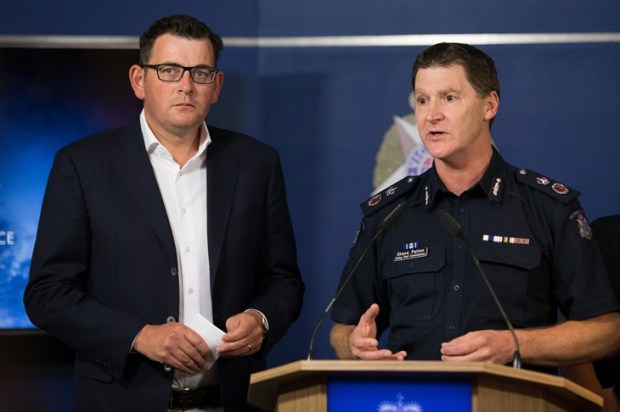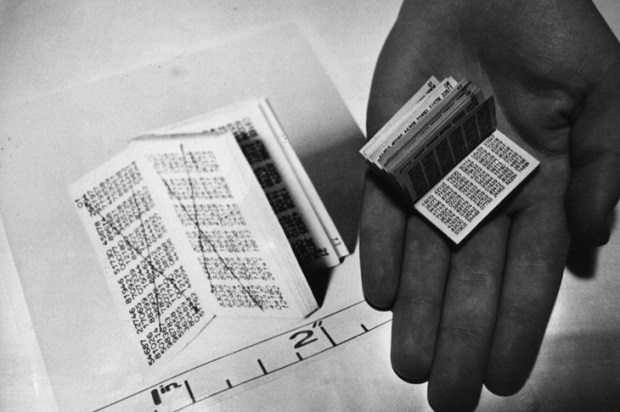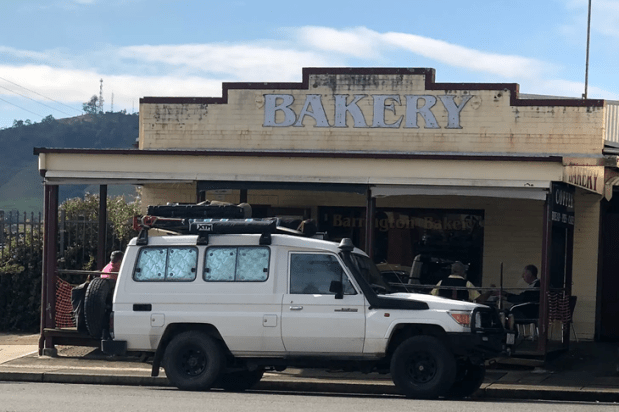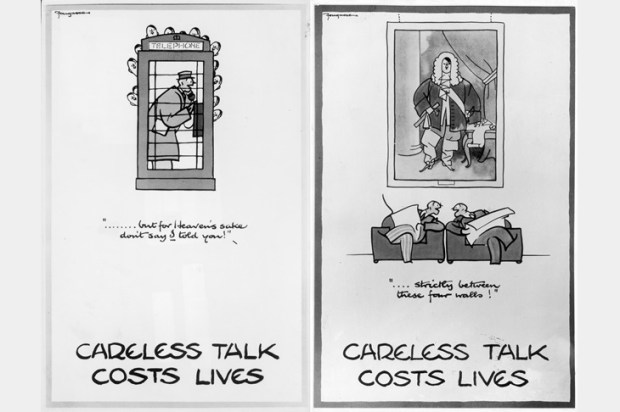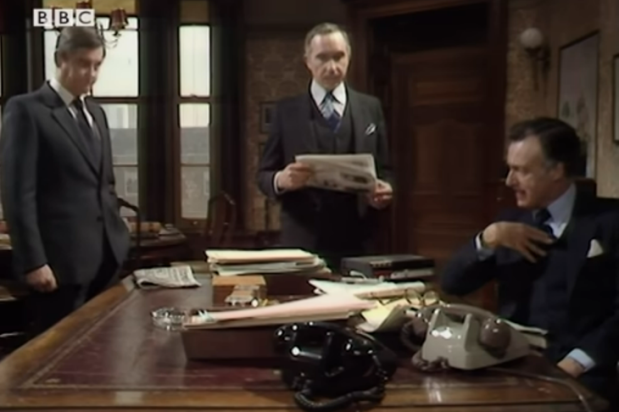I was back at the Melbourne Cricket Ground for the opener of the 2023 AFL Season. This time last year, of course, I wasn’t allowed to attend. Did any of the 88,000 fans in attendance remember that? For all the hype, the ‘it’s great to have the footy back’ tropes, and the ‘Welcome to Country’ lecture – nobody at the AFL or either of the clubs involved evidently thought a word of regret about the outright medical apartheid imposed last year was worth including in the pre-game build-up.
Not that I was expecting one. The honchos at the AFL ‘just happened’ to decide that teams would suddenly decamp interstate ‘just coincidentally’ before Victoria went into one after another of its soul-destroying lockdowns. Sometimes it feels like the AFL is an arm of the Bread and Circuses Department of the Victorian government, so no form of accountability or responsibility is ever going to be on their radar. Which will make it that much more of a surprise to them when it comes. The outcome of the match, by the way, was a draw, with the Carlton Blues and the Richmond Tigers scoring 58 points each. A big fat nothing burger, after all. Just like all the Covid inquiries and other promises of accountability we’ve had in the last three years.
I’m getting a similar vibe from the National Archives of Australia. Back in January, as politely as I could, I asked via their online enquiry page whether and how the records of the so-called National Cabinet would be made publicly available in due course.
‘I would like to know if the records of the National Cabinet that was established on 13 March 2020 will be archived and made available in due course in the same way as the Federal Cabinet papers are, 20 years later. In general what arrangements are there for making the National Cabinet records publicly available?’
A week later I got a pro forma reply, suggesting that they would do their best to reply by midday on March 14. Predictably, midday March 14 came and went, so on March 15 I updated my request, as follows:
The changes you submitted were:
I would like to know, in the light of the Hancock WhatsApp scandal in the UK, what kinds of records are in the scope of the national archives; in particular, are text messages and other types of communication applications (like, but not limited to WhatsApp) the subject of preservation and public availability.
I would also appreciate an update on the likely timeframe for a response to my request, given that the original estimate (14 March 2023) has now passed.
Reason for specific deadline: I want to be confident in the integrity of the National Archives of Australia – that they respond to enquiries on their merits and do not unnecessarily delay responses for any reason, especially political interference. Given that the response has not come within the original estimated time, I would urge you to try to respond within the next 2 weeks. Thank you.
Response time: 31 March 2023
Then, on March 20, I got this:
Dear Mr Kelly,
Thank you for your inquiry to the National Archives of Australia regarding National Cabinet records.
We are currently working on a response to your inquiry. You will hear from us in the near future.
Yours sincerely,
(Name redacted)
National Reference Service
National Archives of Australia
Given that the so-called National Cabinet was established three entire football seasons ago, and that its deliberations gave the green light for policies that caused unprecedented social and economic carnage, I would have thought that the taxpayer-funded bozos running the joint ought to have seen this question coming sooner or later and gotten on with the job of preparing an answer, even if it was just a ‘nothing to see here’ answer of the sort we’ve come to expect and loathe.
These functionaries of the government working at the NAA, and every other department for that matter, would struggle, I think, to outline a case that they deserve our respect. They have treated the public as fools. But formal requests for information, following their own established procedures, at least serve one purpose. Each functionary who has to deal with the online enquiry, each line manager who has to advise the subordinate on how to respond, each committee wasting time trying to spin an answer, each minister drawn away from political in-fighting to approve a response, is confronted with the Big Lie.
The Big Lie is that the government always acts in our best interests. Every public servant along the conga line trying to answer my enquiry has to craft an answer that won’t land them or their boss in trouble. In the case of the NAA, will they be scrambling to hide the secrets of National Cabinet from the public? Will they try to keep WhatsApp messages away from the public eye, if they exist, like those of former UK Health Secretary Matt Hancock who wanted to ‘frighten the pants off everybody’ or ‘deploy the new variant’? Will they conveniently uncover a little-known regulation that kicks the can down the road for 75 years?
Each administrative enquiry like mine is a little chisel blow on the edifice of the Big Lie which is sold to the public as Truth. Each hammer blow on the edifice is a pin-prick on the conscience of the person or persons dealing with my enquiry. While the individual strikes on the chisel seem to have no impact, one day, a fissure will open up, and the collapse will be something to see.
Until then, we have to live in a world that is collapsing every day in a multitude of ways. The collapse of trust in our institutions is mirrored in the collapse of trust in each other. These days, any factual proffered remark can elicit a harsh response that seems to burst out of a deep well of resentment, guilt, or fear, especially if the remark is made by someone known or suspected of being a Covid heretic. Only a hero heretic would respond with an argument and risk jobs, friendships, and marriages. The rest of us bite our tongues, afraid of losing that which we hold most dear. The only coherent response to such aggression is to sanitise the relationship – to bathe it in so much of the antiseptic whitewash we call small-talk that nothing can live on the surface, let alone take root and grow into a fruitful friendship. Existing relationships to find the soil drying up without the regular watering of honesty and understanding. We do what we can to try to understand, and counter, the resentment, guilt, fear, and nurse our precious relationships through this long, dusty drought.
Unlike Trust, which depends on mortals, the truth, or rather Truth, will survive. Truth is where it always was, and where it always will be.
This article was first published on Richard’s Substack. You can read his work here.


